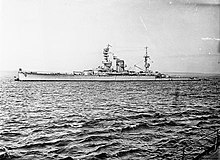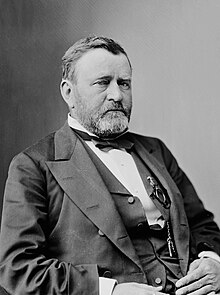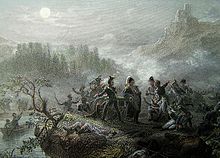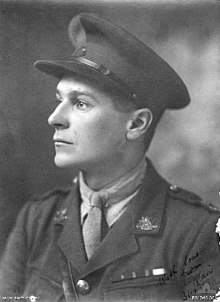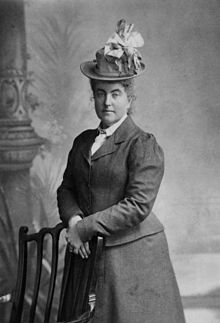Portal:History
The History Portal

Historia by Nikolaos Gyzis
History (derived from Ancient Greek ἱστορία (historía) 'inquiry; knowledge acquired by investigation') is the systematic study and documentation of the human past. History is an academic discipline which uses a narrative to describe, examine, question, and analyze past events, and investigate their patterns of cause and effect. Historians debate which narrative best explains an event, as well as the significance of different causes and effects. Historians debate the nature of history as an end in itself, and its usefulness in giving perspective on the problems of the present.
The period of events before the invention of writing systems is considered prehistory. "History" is an umbrella term comprising past events as well as the memory, discovery, collection, organization, presentation, and interpretation of these events. Historians seek knowledge of the past using historical sources such as written documents, oral accounts or traditional oral histories, art and material artifacts, and ecological markers.
Stories common to a particular culture, but not supported by external sources (such as the tales surrounding King Arthur), are usually classified as cultural heritage or legends. History differs from myth in that it is supported by verifiable evidence. However, ancient cultural influences have helped create variant interpretations of the nature of history, which have evolved over the centuries and continue to change today. The modern study of history is wide-ranging, and includes the study of specific regions and certain topical or thematic elements of historical investigation. History is taught as a part of primary and secondary education, and the academic study of history is a major discipline in universities.
Herodotus, a 5th-century BCE Greek historian, is often considered the "father of history", as one of the first historians in the Western tradition, though he has been criticized as the "father of lies". Along with his contemporary Thucydides, he helped form the foundations for the modern study of past events and societies. Their works continue to be read today, and the gap between the culture-focused Herodotus and the military-focused Thucydides remains a point of contention or approach in modern historical writing. In East Asia a state chronicle, the Spring and Autumn Annals, was reputed to date from as early as 722 BCE, though only 2nd-century BCE texts have survived. The title "father of history" has also been attributed, in their respective societies, to Sima Qian, Ibn Khaldun, and Kenneth Dike. (Full article...)
Featured picture
Did you know (auto generated)

- ... that Chris Wroblewski was the starting point guard for the winningest team in Ivy League history?
- ... that Kim E. Nielsen trained as a historian of women and politics, and came to disability history and studies via her discovery of Helen Keller's political life?
- ... that throughout the history of education in Wales, schools have been held in monastic settlements, cathedrals, residential houses, marketplaces, barns, churches, and village halls?
- ... that the Harlem Park Three were awarded US$48 million, the largest sum in Baltimore history, after being falsely imprisoned for murder?
- ... that the Suwałki Gap is often described as the modern version of the Cold War–era Fulda Gap, a NATO vulnerability of historical importance?
- ... that American environmentalist Rosalie Edge was called "the only honest, unselfish, indomitable hellcat in the history of conservation"?
Fanny Bullock Workman (January 8, 1859 – January 22, 1925) was an American geographer, cartographer, explorer, travel writer, and mountaineer, notably in the Himalayas. She was one of the first female professional mountaineers; she not only explored but also wrote about her adventures. She set several women's altitude records, published eight travel books with her husband, and championed women's rights and women's suffrage.
Born to a wealthy family, Workman was educated in the finest schools available to women and traveled in Europe. Her marriage to William Hunter Workman cemented these advantages, and, after being introduced to climbing in New Hampshire, Fanny Workman traveled the world with him. They were able to capitalize on their wealth and connections to voyage around Europe, North Africa, and Asia. The couple had two children, but Fanny Workman was not a motherly type; they left their children in schools and with nurses, and Workman saw herself as a New Woman who could equal any man. The Workmans began their travels with bicycle tours of Switzerland, France, Italy, Spain, Algeria and India. They cycled thousands of miles, sleeping wherever they could find shelter. They wrote books about each trip and Fanny frequently commented on the state of the lives of women that she saw. Their early bicycle tour narratives were better received than their mountaineering books. (Full article...)
On this day

- 1724 – J. S. Bach led the first performance of the chorale cantata Schmücke dich, o liebe Seele (Adorn yourself, O dear soul), based on the communion hymn of the same name, in Leipzig.
- 1727 – George II and Caroline of Ansbach (pictured) were crowned king and queen of Great Britain in Westminster Abbey.
- 1895 – At Gare Montparnasse in Paris, an express train derailed after overrunning the buffer stop and crashed through the station wall, with the locomotive landing on the street below.
- 1924 – The educational non-profit organization Toastmasters International was founded at a YMCA in Santa Ana, California.
- 2014 – In Ottawa, Canada, the downtown core was placed on lockdown after a series of shootings at Parliament Hill.
- Charles Scott (d. 1813)
- César Luis Menotti (b. 1938)
- Joseph Cahill (d. 1959)
- Oona King (b. 1967)
Selected quote
My heart is a stone: heavy with sadness for my people; cold with the knowledge that no treaty will keep whites out of our lands; hard with the determination to resist as long as I live and breathe.
— Tecumseh, Native American tribal chief
Related portals
More Did you know...
- ... that Giovanni de Ventura, a plague doctor who may have worn a beak doctor costume (pictured), was restricted by a covenant to treat only infectious patients? In the nose of the mask, there were types of plants that were used to filter the sickness from the wearer.
- ... that in some archaic Greek alphabets, an Ε could look like a Β, a Β like a C, a Γ like an Ι, an Ι like a Σ, or a Σ like an Μ?
- ... that the Chinese government has published a list of sixty-four important cultural relics that are forbidden to be exhibited outside of China?
- ... that the 1886 novel Albertine expedited the abolition of public prostitution in Norway?
- ... that Carl Sagan worked with the US Air Force on detonating a nuclear device on the Moon?
- ... that Olympic gold medals have been made out of silver, jade, and glass?
- ... that in 1945 a Japanese battalion was rearmed to serve alongside the British 5th Parachute Brigade in the Far East?
- ... that Solomon was accidentally castrated as an infant?
Topics
Categories

History • By period • By region • By topic • By ethnic group • Historiography • Archaeology • Books • Maps • Images • Magazines • Organizations • Fictional • Museums • Pseudohistory • Stubs • Timelines • Chronology • People • Wikipedia historians
WikiProjects
![]() WikiProject History •
Ancient Near East • Australian History • Classical Greece and Rome • Dacia • Former countries • History of Canada • Chinese history • European history • Heraldry and vexillology • Indian history • Jewish history • Medieval Scotland • Mesoamerica • Military history • Middle Ages • History of Science
WikiProject History •
Ancient Near East • Australian History • Classical Greece and Rome • Dacia • Former countries • History of Canada • Chinese history • European history • Heraldry and vexillology • Indian history • Jewish history • Medieval Scotland • Mesoamerica • Military history • Middle Ages • History of Science
WikiProject Time • Days of the Year • Years
WikiProject Biography • Composers • Political figures • Saints • United States Presidents
Things you can do
 |
Here are some tasks awaiting attention:
|
Associated Wikimedia
The following Wikimedia Foundation sister projects provide more on this subject:
-
Commons
Free media repository -
Wikibooks
Free textbooks and manuals -
Wikidata
Free knowledge base -
Wikinews
Free-content news -
Wikiquote
Collection of quotations -
Wikisource
Free-content library -
Wikiversity
Free learning tools -
Wiktionary
Dictionary and thesaurus







